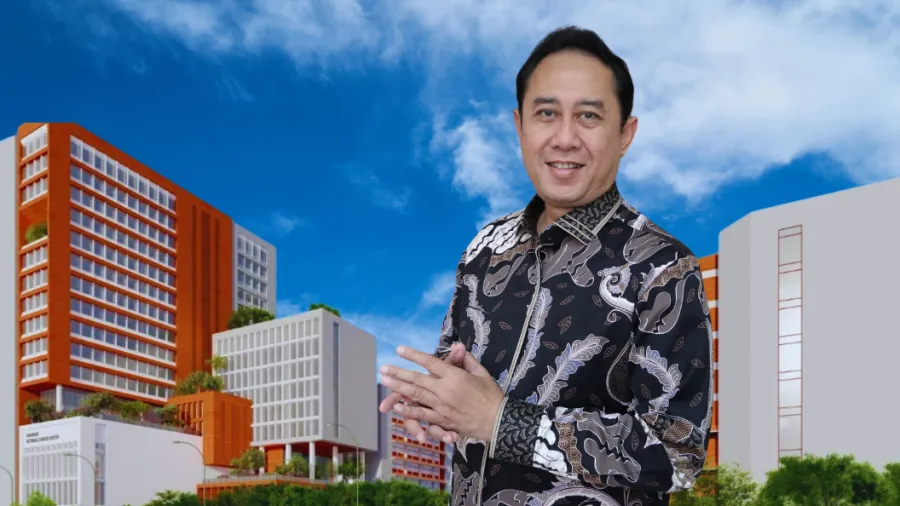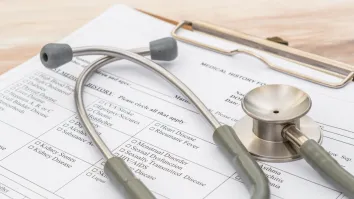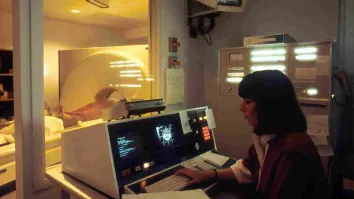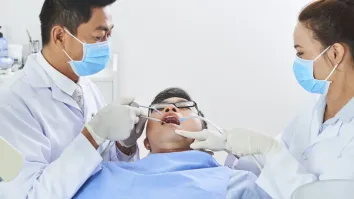
Dharmais Cancer Hospital leads cancer treatment innovation in Indonesia
CEO Soeko Werdi Nindito Daroekoesoemo unveils advanced technology and seven flagship programmes for cancer treatment.
Indonesia is taking significant strides in modernising the approach to cancer treatment.
In this exclusive interview with dr. Soeko Werdi Nindito Daroekoesoemo, MARS, the Chief Executive Officer of Dharmais Cancer Hospital, Healthcare Asia is given a firsthand look into the medical centre’s innovative initiatives and transformative programmes aimed at improving cancer care in the country.
For starters, Soeko stressed that cancer is the third-largest disease consuming the health budget in Indonesia. He then underscores the importance of efforts to enhance early detection, diagnosis, and treatment of cancer, with the ultimate goal of improving outcomes for patients and reducing the burden of the disease.
“If we don't make transformations in cancer care, the burden on the country will only increase,” Soeko said.
The CEO of Dharmais Cancer Hospital mentioned that there are five most commonly encountered types of cancer in Indonesia: breast cancer, cervical cancer, lung cancer, colorectal cancer, and leukemia in children. These five types of cancer are prioritised for intervention by the government.
In this regard, the government through the Ministry of Health has mandated Dharmais Cancer Hospital as the National Cancer Centre. Dharmais Cancer Hospital is tasked with ensuring hospital services throughout Indonesia, including government hospitals such as regional general hospitals in districts/cities and provinces, to provide the best cancer care based on standards where Dharmais Cancer Hospital acts as the coordinator or provider of these services.
This is in line with the six pillars held by the Ministry of Health in transforming its health services, namely: first, strengthening primary care services including at community health centres (puskesmas); second, strengthening referral services or hospitals; third, enhancing capacity in drug production; fourth, improving economic capacity or health insurance; fifth, strengthening human resources; and sixth, enhancing technology globalisation.
As a hospital under the ministry, Dharmais Cancer Hospital supports the government’s six health transformation through its seven programmes: promotive and preventive, early detection, diagnosis and management, cancer registry, research and education, rehabilitation, and palliative care.
Advancements in cancer treatment
Early detection, Soeko said, is crucial in preventing cancer from worsening. Early detection is carried out by Dharmais Cancer Hospital through mass screenings for healthy individuals.
Furthermore, Dharmais Cancer Hospital supports healthcare workers in community health centres or primary care facilities to conduct breast ultrasound examinations to detect breast cancer early.
“If there is any doubt in the ultrasound, it can be confirmed through mammography available at the hospital. Early detection is a diagnosis that is not yet certain; once it is certain that the patient has cancer, the diagnosis is done using advanced tools such as those available at Dharmais Cancer Hospital,” Soeko said.
He highlighted the importance of utilising advanced technology and Indonesian innovations in addressing challenges in cancer treatment.
The technology used in the hospital for diagnosis involves three methods: radiology using x-rays to nuclear energy (nuclear pet scan), which, so far, nuclear energy imaging is only available in four healthcare services in Indonesia with Dharmais Cancer Hospital as the pioneer.
Also, the facility offers anatomical pathology diagnosis by taking body tissues for biopsy and subsequent use of anatomical pathology, and finally, using Immunohistochemistry (IHC) to determine the definitive diagnosis confirmation in order to give the proper medication for cancer treatment.
“In the future, what we will do is support Regional Public Hospitals (RSUD) to perform the same procedures as those carried out at Dharmais Cancer Hospital, namely using telepathology. The samples will be sent digitally to hospitals that already have anatomical pathology specialists, so that the doctors can examine them using digital scans without relying on microscopes,” Soeko told Healthcare Asia.
After diagnosis, therapy is administered. At least three therapies are conducted at Dharmais Cancer Hospital: surgery, chemotherapy, and radiation therapy. The hospital is capable of give treatment, including microsurgery.
“We are also planning to acquire advanced equipment called proton beam therapy, a precision radiation therapy device that can treat small cancers in sensitive areas such as the brain. The equipment can give treatment with precision and minimal side effects. We hope that it will be processed next year,” Soeko said.
Lack of awareness
Amidst the progress in cancer treatment undertaken by Dharmais Cancer Hospital, Soeko pointed out that there are still challenges in early detection and screening, resulting in patients coming to the hospital often being in advanced stages of cancer.
He said the cause lies in challenges in education, and particularly in the deep-rooted fear within society of facing the reality of being a cancer patient.
“Therefore, it should be encouraged through government programmes such as ‘Sadari’ for self-examination of breast lumps,” Soeko said. “Also, there are programmes for early detection of HPV virus to address cervical cancer. Primary healthcare services also need to be strengthened, both technologically and in terms of human resources, to prevent patients from piling up at the referral level or hospitals.”
On top of these, there is ongoing research into the causes of cancer, whether stemming from poor lifestyle choices or genetic factors. This has driven Dharmais Cancer Hospital to continue data collection through the cancer registry programme.
The process involves collecting cancer patient data in collaboration with the BPJS (Indonesian Healthcare and Social Security Agency), the Civil Registration Office (Dukcapil), and monitoring every three-five years. Research is also conducted by forming a multidisciplinary team of various specialist doctors to provide treatment to cancer patients.
As part of the Ministry of Health’s Biomedical & Genome Science Initiative (BGSi), the hospital is also responsible for analysing DNA samples to identify genetic markers associated with cancer.
Consequently, healthcare providers are better prepared to tailor treatment plans for each patient, leading to more targeted and effective therapies.
Dharmais Cancer Hospital is also the first hospital in Indonesia to initiate the Ministry of Health’s Extensive Community Health Outcome (ECHO) programme, which is a healthcare workforce development initiative using telemonitoring and online/web-based distance learning platforms to study cases and practices with foreign universities.
The ECHO programme is also implemented by Dharmais Cancer Hospital with various regional hospitals in Indonesia as part of its role as a regional hospital provider.
“Indeed, Dharmais Cancer Hospital has a plethora of infrastructure, quality human resources, and most importantly, we have initiated the transformation with the seven programmes,” said Soeko.
Looking ahead, he hopes that cancer early detection efforts will become more vigorous and commonplace, becoming programmes funded by local governments. He mentioned that around 1,500 early detection cases have been conducted by Dharmais Cancer Hospital in one year.
For Indonesia, the goal is to enhance the cancer care landscape with a focus on early detection initiatives, expanding access to advanced treatments, and strengthening healthcare workforce.
By harnessing the power of technology, fostering collaboration, and investing in education, Dharmais Cancer Hospital is helping Indonesia make significant strides in combating cancer and improving the quality of life for patients across the archipelago.

















 Advertise
Advertise






